HYANNIS OYSTER UPWELLER
In partnership with the Massachusetts Oyster Project (MOP) and the Town of Barnstable, BCWC built and installed an oyster upweller tank at Gateway Marina on Hyannis Harbor during the summer of 2018. The goal of this partnership was two-fold: to raise oysters from seed-size (2mm) to juvenile-size (25mm) in the upweller using water pumped from the harbor and to demonstrate that oysters improve water quality and clarity by filtering out nutrients and sediment.
 The function of the upweller is to promote and accelerate growth by providing the oysters with consistent, nutrient-rich water and protection from predation. The upweller’s fiberglass tank was made in Gloucester and transported to Hyannis. A platform with railings was built at Gateway Marina behind the Cape Cod Maritime Museum and the tank was placed on the platform. Once plumbing and electricity were connected, the upweller was up and running, ready to receive oyster spat.
The function of the upweller is to promote and accelerate growth by providing the oysters with consistent, nutrient-rich water and protection from predation. The upweller’s fiberglass tank was made in Gloucester and transported to Hyannis. A platform with railings was built at Gateway Marina behind the Cape Cod Maritime Museum and the tank was placed on the platform. Once plumbing and electricity were connected, the upweller was up and running, ready to receive oyster spat.
So, how exactly does an upweller work? The tank contains ten buckets that hold the oysters. Water is continuously pumped from Hyannis Harbor into the tank and through the buckets, with the oysters filter feeding on phytoplankton and algae. The cleaner, oyster-filtered water is then pumped back into Hyannis Harbor.
In late July 2018, 50,000 seed oysters were transported from Maine and placed in the buckets. The tiny 2mm seed oysters, called spat, grew quickly in the warm, nutrient-rich waters from the harbor. Daily upweller maintenance involved cleaning the tank and buckets, sorting oysters and ensuring the pump and other equipment were working properly. BCWC staff spent many hours at the upweller caring for the oysters and educating the public about the project, oysters and water quality.
By early September, many of the oysters had grown to a length of 25mm and were ready to be relocated to a site in Barnstable waters. Staff from Barnstable’s Department of Natural Resources placed the oysters at a site in Cotuit Bay on September 11th. Here the oysters will continue to mature to a harvestable size (three inches), while at the same time improving water quality by filtering nutrients like nitrogen and phosphorous out of our local waters.
For the summer of 2019, BCWC had an intern, Tatiana Chinitz, solely dedicated to overseeing the growth of 120,000 oysters in the tank –double the number from last year. Tatiana was responsible for the daily maintenance of the tank, along with caring for and sorting the oysters from tiny spat (1mm) to juvenile size (25mm). As the oysters grew, they were sorted into separate buckets based on size to help with water flow allowing for better filtration by the oysters. While at the upweller, Tatiana and other BCWC staff also got a chance to educate over 1700 people about oysters and their importance to our local waters and economy.
The 120,000 oysters were moved to Cotuit Bay, where they will reside until three inches in length and ready for harvesting by those with recreational shell fishing licenses. While they grow, the oysters will be consuming algae and detritus from the water, making it a cleaner environment.
For the past two summers, BCWC has had interns (Tatiana Chinitz, Caroline Davock, Drew Kelly, and Jack McMann) solely dedicated to overseeing the growth of over 240,000 oysters in the tank. These interns were responsible for the daily maintenance of the rank, along with caring for and sorting the oysters from tiny spat (1mm) to juvenile size (25mm). As the oysters grew, they were sorted into separate buckets based on size to help with water flow allowing for better filtration by the oysters. During the summer of 2019, Tatiana and other BCWC staff also got a chance to educate over 1700 people about oysters and their importance to our local waters and economy. Due to COVID-19, this year’s interns were limited with their public interactions.
BCWC would like to thank the Massachusetts Oyster Project, the Town of Barnstable’s Department of Natural Resources, the House Company and the Muscongus Bay Aquaculture Hatchery for their generosity and assistance with the Hyannis Oyster Upweller.
Shell Recycling
The town of Barnstable’s Natural Resources Staff have begun a Shell Recycling Program! Shell recycling bins can be found at Scudder Lane, Cordwood Landing, and Bridge Street Landing along with associated signage in an effort to collect only shells and not trash. These shells will then be brought to the Barnstable Transfer Station, where they will be aged. All species of shell are allowed in the recycling bins, regardless of whether they were harvested in Barnstable or purchased at a store.
It is asked that prior to dropping shells in the recycling bins, rinse off any sauces from the shells. Picking them clean is not necessary.
If anyone is interested in volunteering their time on days where bins are unloaded at the transfer station please contact Liz Lewis at Elizabeth.Lewis@town.barnstable.ma.us
It is hoped that these recycled shells will be used for the town’s Remote Set Program, which encourages the oyster larvae to attach themselves to the recycled shells in designated areas. Oysters grown using the Remote Set Method have been known to be resistant to easily spread shellfish diseases.
































